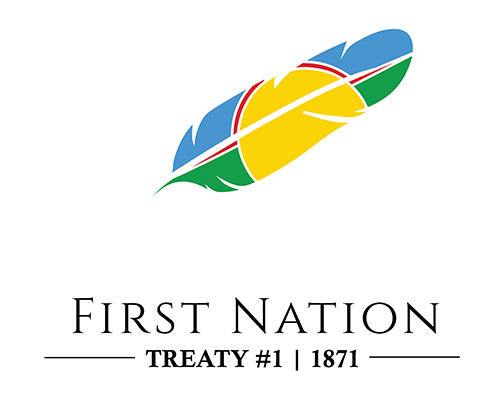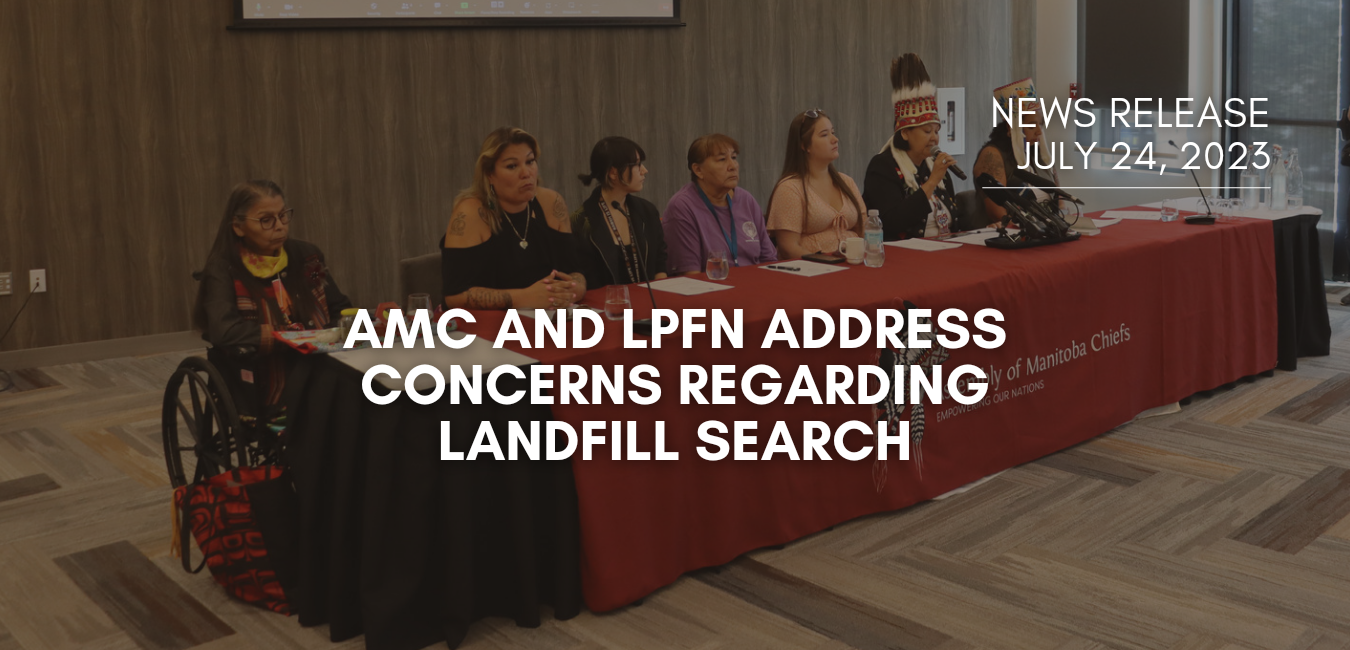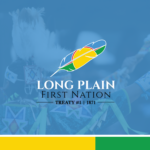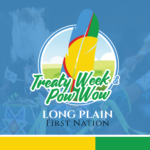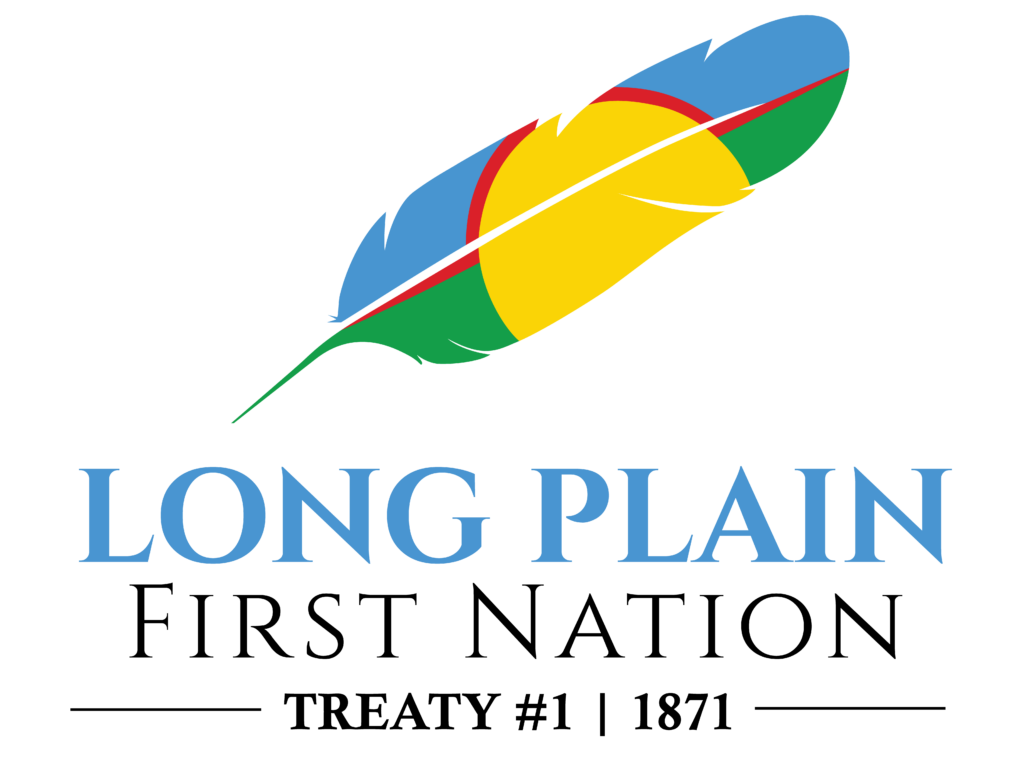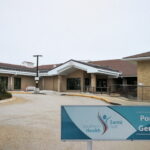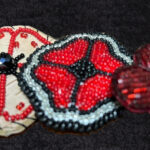Treaty One Territory, Manitoba – The Assembly of Manitoba Chiefs (AMC) and Long Plain First Nation (LPFN) continue to be disappointed with the delay by all levels of government to provide support to search the Prairie Green landfill for the remains of Morgan Harris, Marcedes Myran and Mashkode Bizhiki’ikwe (Buffalo Woman). First Nations leaders are urging immediate and resolute action to bring these women home so that they may rest in a respectful place and provide peace for their families. Last week, Manitoba’s Justice Minister, Kelvin Goertzen, recently aligned with the Premier’s stance, voicing concerns that conducting a search could potentially jeopardize the case against the accused serial killer currently awaiting trial.
In response to Justice Minister Goertzen’s recent statement, Grand Chief Cathy Merrick stated, “The feasibility report was meticulously designed to outline a safe and effective plan for the search and recovery efforts of murdered loved ones as well as addressing safety concerns and prioritizing the well-being of all involved in these efforts. Despite these thorough assessments, the province has chosen not to commit its support for the search, now citing safety concerns without providing specific details to validate them and the impact such a search would have on the prosecution of the accused.”
Chief Kyra Wilson of Long Plain First Nation added, “This latest provincial response is deeply concerning as it leaves affected families in an unfortunate dilemma: they must choose between pursuing justice in court or advocating for the search and recovery of their loved ones. Moreover, the province’s actions demonstrate a familiar lack of urgency in handling cases of MMIWG2S+, which is concerning not only for the affected families but for all of Turtle Island.”
AMC leadership firmly believes that the current situation could have been avoided if the province had acted promptly upon the feasibility report released to all parties involved in the Landfill Search Feasibility Study Oversight Committee which included a representative from the government of Manitoba.
The province’s current actions raise concerns about its commitment to ensuring justice for the families of Morgan Harris, Marcedes Myran, and Mashkode Bizhiki’ikwe. These actions are inconsistent with the calls to justice outlined in the National Inquiry into Missing and Murdered Indigenous Women and Girls.
“We firmly support a fair and timely prosecution of the accused while also ensuring justice for the victims and their families. It is imperative that the perpetrator of these horrendous crimes faces justice, and we must also remember that Morgan, Marcedes, and Mashkode Bizhiki’ikwe deserve justice – to be located, to have their remains treated with respect and dignity, and to be brought back home,” stated Chief Kyra Wilson.
The Assembly of Manitoba Chiefs and Long Plain First Nation remain willing to work with the province to find a way to proceed with these crucial efforts alongside the police investigation. Necessary measures can be implemented to preserve evidence and safeguard the investigative process.
In conclusion, Grand Chief Merrick emphasized, “Taking no action at all is not an acceptable option.”
The leaders call upon the provincial government to swiftly respond to the calls for justice and give top priority to searching the landfills for the remains of MMIWG2S+. This action is crucial to ensure that justice is served, and the affected families can begin to heal.
For more information, please contact: Communications Team
Assembly of Manitoba Chiefs
Email: media@manitobachiefs.com
About the Assembly of Manitoba Chiefs
The AMC was formed in 1988 by the Chiefs in Manitoba to advocate on issues that commonly affect First Nations in Manitoba. AMC is an authorized representative of 62 of the 63 First Nations in Manitoba with a total of more than 151,000 First Nation citizens in the province, accounting for approximately 12 percent of the provincial population. AMC represents a diversity of Anishinaabe (Ojibway), Nehetho / Ininew (Cree), Anishininew (Ojibwe-Cree), Denesuline (Dene) and Dakota Oyate (Dakota) peoples.
